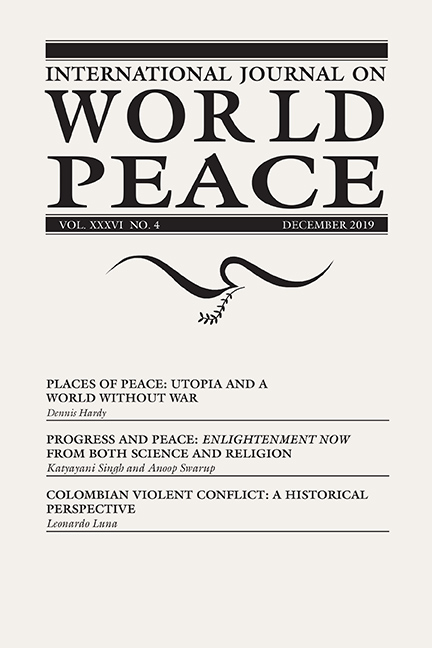
This issue of International Journal on World Peace has three very different articles: one on utopianism and peace, one on the nature of “enlightenment,” and one on the history of power struggles and human rights in Colombia. All of these articles are, nevertheless, related to the idea of social progress. Some ideas of “progress” are based on group advancement, where power is used by one group to conquer a group who has something they want, while others are based on a vision of production and development in which all people live together peacefully with abundance.
In our lead article, “Places of Peace: Utopia and a World Without War,” Dennis Hardy states that “Few would dissent from a general thesis that the human condition can be improved.” Utopian writers speak of an alternative place where life is better for them than what exists at present. However, no two individuals have exactly the same idea of what utopia is. “Utopian writers approach their subject with different assumptions. Fundamental to these is how they view human nature.”
For some visionaries, utopian societies employ slaves to carry out menial work to make life comfortable. For others, utopia involves the glories of war, the destruction of traditions, museums, and anything opposing the utopian vision. Most people today, however, would hardly call such utopias “progress.” There are more utopian visions in favor of peace than war.





